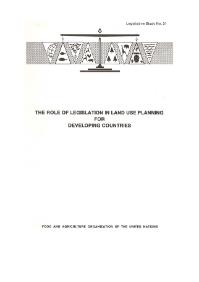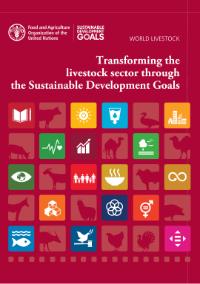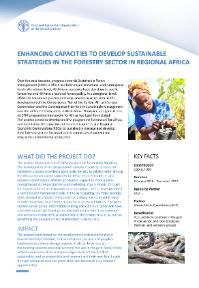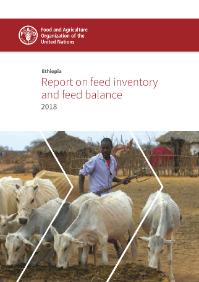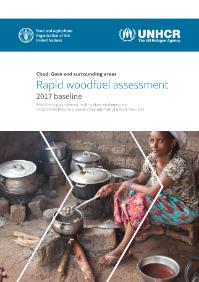The present study, by the Chief of the Agrarian and Water Law Section of the FAO Legislation Branch, is intended to explore in greater depth the value of legislation to the land use planning process. It is, on the one hand, an exploration of the ways in which legislation serves to provide the…
The report “Transforming the livestock sector through the sustainable development goals” examines the sector’s interaction with each of the SDGs, as well as the potential synergies, trade-offs, and complex interlinkages involved. The publication is intended to serve as a reference framework for…
Accessibility to clean and sufficient water resources for agriculture is key in feeding the steadily increasing world population in a sustainable manner. Nature-Based Solutions (NBS) offer a promising contribution to enhance availability and quality of water for productive purposes and human…
Feed and grazing management affect both the quantity and quality of animal manure and consequently nutrient cycling in the mixed crop-livestock systems in West Africa Sahel. Dietary measures can significantly influence the composition of manure and hence it’s agricultural value. High nutrient…
Agriculture influences and shapes the world’s ecosystems, but not always in a positive way. More than 2.5 billion people are globally involved as stewards of land and water ecosystems that constitute the natural resource base for feeding the current and future world population. Yet, conventional…
In many countries, pastoralism has historically been practiced in areas that are now partitioned by international boundaries. This is a major barrier to sustainable resource management and to pastoral development. However, there are examples from around the world of efforts to facilitate…
En 2016, el Centro para la Autonomía y el Desarrollo de los Pueblos Indígenas (CADPI), junto con el equipo de Pueblos Indígenas de FAO y el apoyo técnico del equipo de Tenencia de la Tierra de FAO, implementaron un programa de desarrollo de capacidades para y con los pueblos indígenas de…
Over the past decades, progress towards Sustainable Forest Management (SFM) in Africa has been made at national and subregionallevels. At national level, 43 African countries have developed specific forest law and 40 have a national forest policy. At subregionallevel, efforts to harmonize…
Available evidence indicates that pastoral destitution in Ethiopia is principally driven by feed and water scarcity. Feed resources ought to be considered in the broader perspective and not predominantly during emergency as is the case now. Feed inventory and balance is therefore requisite such…
Sustainable Development Goal 1, ending poverty in all its forms, everywhere, is the most ambitious goal set by the 2030 Agenda. This Goal includes eradicating extreme poverty in the next 12 years, which will require more focused actions in addition to broad-based interventions. The question is:…
The two waves of refugees from the Central African Republic has provoked one of the most severe humanitarian crises in Central Africa and in the South of Chad. The different camps around the city of Goré host a population of more than 90 000 individuals of which 35% are refugees, 21% are…


